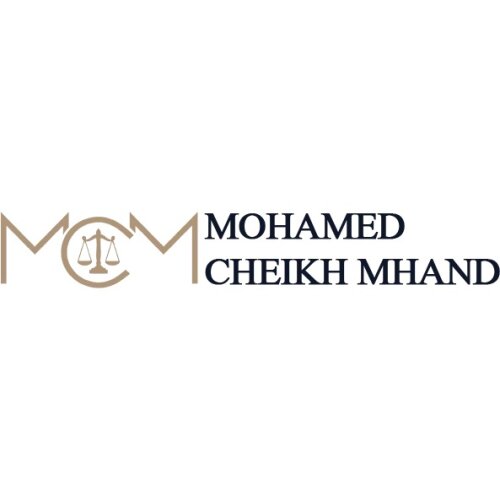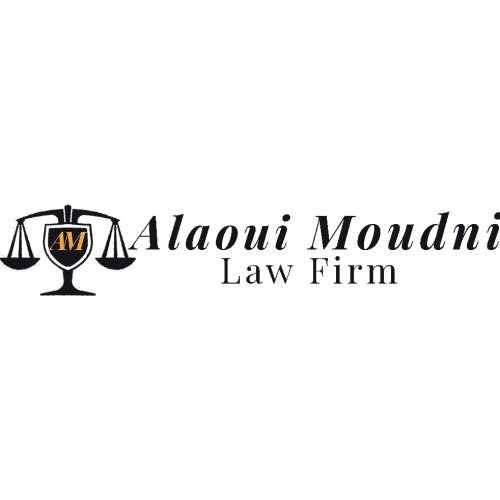Best Child Visitation Lawyers in Morocco
Share your needs with us, get contacted by law firms.
Free. Takes 2 min.
Free Guide to Hiring a Family Lawyer
Or refine your search by selecting a city:
List of the best lawyers in Morocco
About Child Visitation Law in Morocco
Child visitation in Morocco is governed by the Family Code, known locally as the Moudawana. The principles of family law in Morocco prioritize the welfare and best interests of the child when determining visitation rights. Typically, visitation arrangements are made for the non-custodial parent, allowing them to maintain a meaningful relationship with their child. The law seeks to balance the rights of parents with the child’s needs, ensuring that visitation schedules are fair and respectful of all parties involved.
Why You May Need a Lawyer
There are several common situations where seeking legal assistance with child visitation could be beneficial:
- Disputes over visitation schedules or agreements.
- Modifications to existing visitation arrangements due to changes in circumstances, such as relocation or changes in work schedules.
- Complex custody cases involving allegations of neglect or abuse.
- Understanding and navigating the legal system to protect parental rights.
- Enforcement of visitation rights when one party is not complying with the agreed terms.
Local Laws Overview
Morocco’s Family Code outlines the legal framework for matters related to child custody and visitation. Key aspects relevant to child visitation include:
- The primary focus is on the child’s best interests when determining custody and visitation arrangements.
- The non-custodial parent is entitled to reasonable visitation, which should not impede the child’s daily routine.
- Visitation agreements can be mutually decided by the parents or, if necessary, determined by the court.
- Courts may consider factors such as the child’s health, safety, and the emotional needs when deciding on visitation.
Frequently Asked Questions
1. Who is entitled to visitation rights in Morocco?
In general, the non-custodial parent is entitled to visitation rights, but these rights can be extended to grandparents or other relatives if it is deemed in the child's best interest.
2. Can the visitation schedule be modified?
Yes, visitation schedules can be modified if there is a significant change in circumstances that justifies a revision in the agreement.
3. What happens if a parent violates the visitation agreement?
If a parent violates the visitation agreement, the affected party may seek enforcement through the courts, which can adjust the terms or impose penalties as necessary.
4. Is it possible to relocate with the child without affecting visitation rights?
Relocation that significantly impacts the existing visitation arrangement typically requires a court's approval to ensure that the child's best interests are being prioritized.
5. Can visitation rights be denied?
Yes, visitation rights can be denied if it is proven that contact with a parent would be detrimental to the child's safety or well-being.
6. Are visitation decisions made by a religious court in Morocco?
No, visitation decisions are made under the jurisdiction of family courts operating under civil law, not religious courts.
7. How long does the process take to establish visitation rights?
The duration can vary depending on the complexity of the case and the court’s schedule, but legal proceedings can often take several months.
8. Can children decide their visitation schedule?
Older children's preferences may be considered by the court, but the ultimate decision rests with the judge based on the child’s best interests.
9. What documents are required for a visitation case?
Documents typically include proof of identity, previous custody or visitation agreements, and any evidence related to the case such as communications records.
10. Is mediation available for resolving disputes?
Yes, mediation is encouraged in Morocco as a way to amicably resolve visitation disputes without resorting to litigation.
Additional Resources
The following organizations and resources can provide additional support and information:
- Ministry of Justice: Provides legal information regarding child and family law.
- Family Courts: Offer guidance and processing of child visitation cases.
- Local Bar Associations: Can connect you with family law specialists.
- Mediation Centres: Facilitate discussions and agreements between parties in disagreement over visitation.
Next Steps
If you require legal assistance with a child visitation matter, consider the following steps:
- Consult with a family law attorney specializing in Moroccan family law to better understand your rights and obligations.
- Gather all relevant documentation related to your case, such as court orders, agreements, and communication records.
- Consider alternative dispute resolution methods such as mediation if both parties are open to negotiation.
- If necessary, prepare to present your case to the family court to ensure that your parental rights are protected and that the child’s best interests are met.
- Stay informed about local laws and any legal changes that may affect child visitation arrangements.
Lawzana helps you find the best lawyers and law firms in Morocco through a curated and pre-screened list of qualified legal professionals. Our platform offers rankings and detailed profiles of attorneys and law firms, allowing you to compare based on practice areas, including Child Visitation, experience, and client feedback.
Each profile includes a description of the firm's areas of practice, client reviews, team members and partners, year of establishment, spoken languages, office locations, contact information, social media presence, and any published articles or resources. Most firms on our platform speak English and are experienced in both local and international legal matters.
Get a quote from top-rated law firms in Morocco — quickly, securely, and without unnecessary hassle.
Disclaimer:
The information provided on this page is for general informational purposes only and does not constitute legal advice. While we strive to ensure the accuracy and relevance of the content, legal information may change over time, and interpretations of the law can vary. You should always consult with a qualified legal professional for advice specific to your situation.
We disclaim all liability for actions taken or not taken based on the content of this page. If you believe any information is incorrect or outdated, please contact us, and we will review and update it where appropriate.
Browse child visitation law firms by city in Morocco
Refine your search by selecting a city.

















